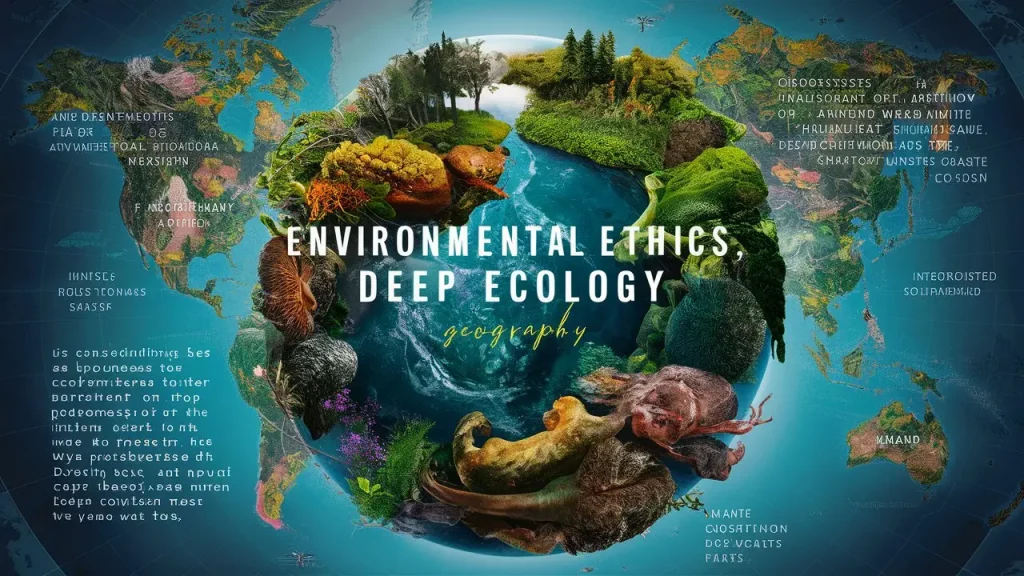The University at the Crossroads of Three Ecologies: Natural Environment, Culture, and Economy
In the 21st century, universities are no longer just centers of academic excellence; they serve as crucial crossroads where three essential ecologies—the natural environment, culture, and economy—intersect. As global challenges become more complex, universities are uniquely positioned to play a leading role in shaping sustainable futures by integrating these ecologies into their core missions. The university of today is more than a place for education; it is an institution deeply embedded in the ecosystems that sustain life, social development, and economic growth.
The Role of the Natural Environment in Education
In recent years, the growing awareness of environmental issues, such as climate change, deforestation, and biodiversity loss, has transformed the role of universities. They are not only tasked with educating the next generation of leaders but also with driving sustainability and environmental stewardship. At the intersection of the natural environment and academia, universities are emerging as incubators for green technologies, sustainable practices, and environmental policy research.
Many universities have embraced this role by integrating environmental science into their curricula and research programs. They often collaborate with governments, industries, and non-governmental organizations to find innovative solutions to pressing environmental challenges. Sustainability programs, climate research centers, and green campuses are becoming integral parts of modern academic institutions, aligning their practices with the urgent need to protect and preserve the natural environment.
A notable example is the rise of campus sustainability initiatives. Many universities around the world have adopted eco-friendly policies that focus on reducing carbon footprints, promoting renewable energy, and implementing waste reduction strategies. These initiatives often go hand-in-hand with academic programs that emphasize the relationship between human activity and environmental sustainability.
Culture: Universities as Hubs of Social and Cultural Exchange
Culture plays an equally important role in the university’s ecosystem. Universities are melting pots of diverse cultures, ideas, and perspectives. In a world that is becoming increasingly interconnected, these institutions serve as platforms for cultural exchange, where students and faculty from different backgrounds can come together to share knowledge and experiences.
The cultural ecology of a university is essential for fostering creativity, innovation, and critical thinking. Students are not only exposed to academic theories but also to a variety of cultural narratives that shape their worldviews. This diversity enriches the educational experience and helps prepare graduates to work in globalized industries and multicultural societies.
Cultural engagement also manifests through university-led initiatives such as art programs, music, theater, literature, and social sciences, which explore and preserve the rich heritage of communities. These cultural initiatives contribute to societal development by promoting inclusivity, tolerance, and social cohesion, values that are necessary for a thriving global economy.
Moreover, universities often act as cultural ambassadors in their local communities, hosting public events, lectures, and exhibitions that celebrate the cultural diversity of their regions. This connection between academia and culture strengthens the role of universities as key contributors to both local and global cultural preservation and innovation.
Economy: Universities as Engines of Economic Growth
Universities are not just centers of learning—they are also powerful economic engines that fuel local, regional, and global economies. Their contribution to the economy comes in multiple forms: from research and innovation that leads to technological advancements to the skilled workforce they produce, and even the direct economic impact of student spending and university operations.
The relationship between universities and the economy is multifaceted. Universities conduct cutting-edge research that leads to the development of new technologies, startups, and intellectual property. The rise of university-business partnerships has fostered a collaborative environment where academic research is translated into practical solutions, driving innovation in industries ranging from healthcare to engineering to information technology.
Additionally, universities play a significant role in workforce development. By providing high-quality education and training, they equip students with the skills and knowledge needed to succeed in the modern economy. Many industries rely heavily on the talent pipeline coming from universities, making these institutions key players in national and global economic strategies.
In many cities, universities are also major employers and contribute significantly to local economies. The presence of a thriving university can attract industries, technology parks, and international businesses to surrounding areas, stimulating job creation and economic growth. This phenomenon, known as the knowledge economy, highlights the essential role universities play in shaping economic landscapes through intellectual capital.
The Intersection of the Three Ecologies
The modern university sits at the crossroads of the natural environment, culture, and economy. These three ecologies are interdependent and constantly influence each other in the university’s ecosystem.
- Sustainability and the economy: As universities lead the charge in environmental research and sustainability, they help drive the green economy by fostering innovations in renewable energy, eco-friendly materials, and sustainable agriculture. These contributions not only help mitigate environmental degradation but also create new economic opportunities and industries.
- Culture and economy: Cultural initiatives on university campuses often stimulate creative industries such as film, design, and media. Universities also play a key role in shaping the cultural policies that can enhance local and national economies, particularly in regions where cultural tourism is a significant economic driver.
- Environmental consciousness and culture: Universities help build environmentally conscious cultures within their campuses and local communities. They play a central role in shaping societal values around conservation, climate action, and sustainable living, which in turn influence political and economic policies worldwide.
Conclusion: Universities as Catalysts for Global Change
Universities, at the intersection of these three ecologies, are powerful agents of change in the world. They shape the future by educating the next generation of leaders, conducting groundbreaking research, and acting as hubs for cultural and economic development. As global challenges become more complex, universities will continue to be at the forefront, driving solutions that integrate the natural environment, culture, and economy in a holistic way.
By understanding the interconnectedness of these ecologies, universities can better fulfill their roles as stewards of sustainable development, innovation, and cultural engagement. This unique positioning allows them to shape a future where environmental sustainability, cultural diversity, and economic prosperity thrive together.
For insights on global academic trends and the role of universities in modern society, visit ITSparkMedia.


